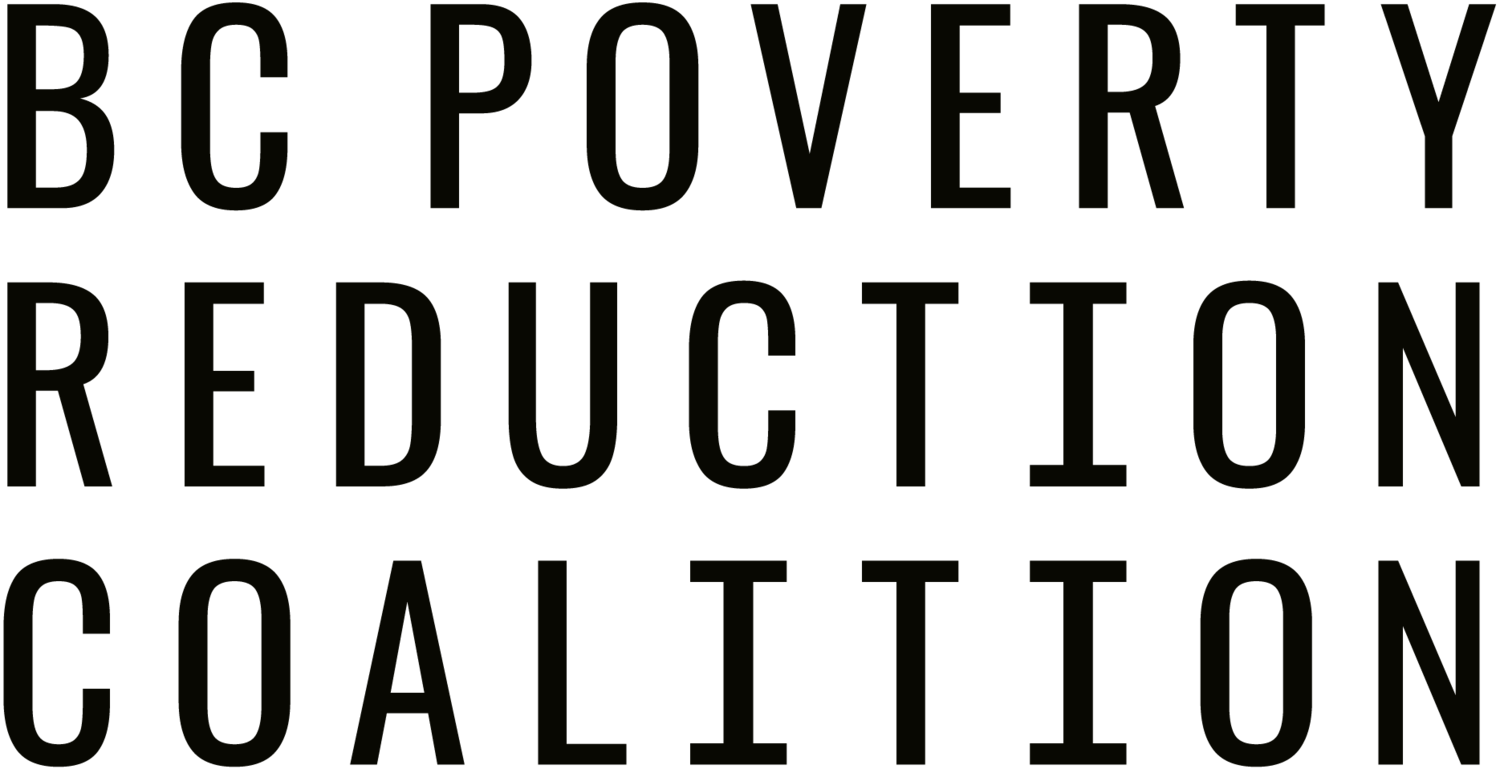Submission to the CleanBC Review
tackle inequality, poverty, and climate change simultaneously by prioritizing at-risk communities in all climate justice work.
Submitted written recommendations to the Ministry of Energy and Climate Solutions during their independent review of CleanBC policies and programs
Compiled by Rowan Burdge & Chantelle Spicer, BC Poverty Reduction Coalition
On behalf of the coalition, we are making 8 recommendations:
Expand climate measures beyond carbon emissions
Implement a tax credit similar to the Climate Action Credit
Expand workers’ rights during extreme climate events
Legislate and enact the right to cooling for renters, as well as enhanced renter protections during climate emergencies and extreme weather events
Invest in province-wide public transit
Prioritize and fund localized projects with communities and Indigenous Nations
Adapt a climate response plan that includes marginalized communities
Implement accountability mechanisms
Expand climate measures beyond carbon emissions
People in BC have been deeply affected by the impacts of climate change and extreme weather, and those most impacted are already systemically disadvantaged by poverty, inequality, systemic racism, and colonialism. Rural, coastal, and remote regions tend to be most affected by climate disasters, as are many Indigenous communities, who face systemic barriers in meeting their survival needs. We must see bold action to tackle the climate crisis while ensuring that lower-income households are not made worse off and, indeed, that social justice and economic security are enhanced.
This is a critical time to transform CleanBC into a genuine climate emergency plan. Clean BC must consider measures, targets, tools, and programs that extend far beyond just carbon emissions if we hope to create a resilient BC. We must also consider community well-being, safety, and health as indicators of the climate crisis, as well as how we address, prevent, and mitigate climate change in neighbourhoods. This means including communities most impacted, addressing these issues holistically, and keeping human rights at the centre. Clean BC must consider human rights, examine measures beyond emissions, and address the climate crisis from a cross-ministerial, intersectional perspective.
Implement a tax credit similar to the Climate Action Credit
Although it was not a perfect tool, the climate action tax credit served as a distribution mechanism to support low-income families and individuals. The CATC had been a tool addressing income inequality in BC, with over $1 billion transferred at the time of its elimination. The CATC was also a political acknowledgement that low- to middle-income households are more adversely affected by climate change and most climate policies.
Although re-implementing the Carbon Tax directly might not be a viable option politically, a similar program of distributing taxes from pollution emitters to those most at risk of climate impacts is required and would potentially benefit tens of thousands of families for the better.
Expand workers’ rights during extreme climate events
Extreme weather and climate change have profound impacts on our economy. Clean BC must enact workers' rights and ensure labour laws incorporate important climate-related legislation and policies. As extreme heat impacts food service workers, it affects workers in all sectors. Clean BC must ensure the Employment Standards Branch is up to date, and reinforced to connect workers with rights, protections and services, which is a climate issue. Clean BC should include paid climate leave, open work permits for all workers, including undocumented and migrant workers, enforce health and safety regulations that account for temperature, and bring the minimum wage up to ensure workers in BC have access to decent wages. Clean BC should also consider the rise of precarious work, and create more pathways to the Employment Standards Branch.
Legislate and enact the right to cooling for renters, as well as enhanced renter protections during climate emergencies and extreme weather events
Renters and tenants require stronger protections to mitigate the effects of extreme heat in their homes. During the heat dome of 2021, 98% of people who died from heat injury died inside in spaces that were not adequately cooled. Renters' rights to access to cooling need to be a key part of keeping people in BC safe and mitigating the harms of climate change. The UBC Centre for Climate Justice has recently released a report outlining recommendations for what a Right to Cool Framework for BC should entail. We strongly encourage Clean BC to implement its recommendations, especially those related to expanding affordable cooling programs, offering free public transit during extreme weather (and beyond), implementing retrofits, and addressing housing precarity and quality. Wider housing policies like vacancy control and landlord registries could also help address housing quality and precarity issues.
Additionally, expanding retrofit programs for older buildings, BC Housing Programs, social housing, and low-income multi-unit rental apartments in BC is needed. The free and low-income air conditioning and heat pump programs need to be drastically expanded to meet the need. These programs need to be drastically scaled up, and more investment is required in order to ensure retrofits. Housing, health, and climate are deeply interconnected issues that need to be addressed as part of Clean BC to ensure the province has appropriate preparation in place.
Invest in province-wide public transit
Even if Clean BC remains focused on carbon emissions, affordable, accessible, and dignified public transportation is a critical area of investment and policy. Transportation is a primary contributor to emissions, and public transit is one of the best, most cost-effective solutions available to address today’s climate and development challenges.
The CCPA-BC and the BC Federation of Labour’s Connecting BC report outlined a clear investment strategy to improve public transportation in the province. We would also add that supporting climate resiliency plans for BC Transit and Translink is essential to ensure our public transit systems can adapt to a changing climate and meet the needs of riders during climate-related events.
Prioritize and fund localized projects with communities and Indigenous Nations as partners
The devastating impacts of the climate crisis on migratory patterns, tidal areas, and harvesting seasons, which are integral to Indigenous food systems, are well-documented. From the 2021 heat dome, we also saw the way that primarily Indigenous communities can be devastated by wildfires. Addressing climate change must include respecting Indigenous land sovereignty, stewardship, and rights to cultural and spiritual practices, as well as land defence and food harvesting. This includes land back, re-establishing Indigenous governance, land stewardship, and political ownership of land.
We also recognize the importance of collaborative, clean energy projects with Indigenous communities. As an example, the 2024 BC Hydro’s Clean Power Call is undertaking 10 projects with First Nations, with a minimum 25% stake from local First Nations. In future initiatives, it will be critical to achieve greater Indigenous governance and benefits over projects; however, we are greatly concerned about how recent legislation enables the BC cabinet to override environmental approvals and other public processes for carbon-emitting projects that actually undermine BC’s stated climate goals.
Investments like the $134 million to the CleanBC Communities Fund to fund climate action infrastructure projects for Indigenous communities and Local Governments also hold promise. However, with no comprehensive plan to support vulnerable communities, including fossil fuel workers, resource-dependent communities, and Indigenous or remote communities from the impacts of climate change, the implementation and sustainability of these initiatives are at risk.
Adapt a climate response plan that includes marginalized communities
We need a climate response plan that includes vulnerable community members. As we address the climate change emergency with bold action, we must prioritize the needs of systematically marginalized groups. Climate justice must mean full justice for communities, encompassing equitable economic survival and resilience, access to clean land, air, and water, and protection from the impacts of climate change that leave no community member behind. This Ombudsperson report found that emergency support programs are outdated and inadequate. Urgent action is needed to ensure climate safety, which in turn creates wider public safety.
For years, research has shown that in emergency contexts, disabled people are significantly more likely to suffer morbidity and mortality. For instance, during the heat dome that gripped BC in June 2021, people with schizophrenia were four times more likely to die, and some medications became less effective in the heat. Unhoused people are at the frontlines of climate impact, as many unhoused individuals rely on public spaces that are becoming increasingly privatized, while navigating public and outdoor spaces in unique ways. For people who sleep outdoors or with precarious housing or shelter options, the situation can become very unpredictable with the onset of extreme weather.
Clean BC must realize the needs of those most vulnerable, and implement proactive prevention measures, including programs that foster climate resiliency, rather than relying on expensive emergency response measures. It also means strengthening the social safety net to ensure low-income communities have the tools required to protect themselves in emergencies. Ensuring families have access to childcare, food security, and raising the rates for income and disability assistance are all poverty reduction measures that impact our collective climate resiliency. Clean BC should also consider wider poverty reduction measures as tools for a climate-safe and resilient BC.
Implement accountability mechanisms
Having a plan or targets in place means nothing if the government is not accountable to them. This has never been more poignant as BC’s progress on curbing emissions is minimal. Gross emissions for 2020 – the most current year available – were just one percent below 2007 levels, with the province noting that emissions in 2020 were likely lower than they would have been due to slower economic activity associated with the pandemic. BC is going to miss its 2025 and 2030 climate targets without bold climate action, which has been admitted by new Energy and Climate Solutions Minister Adrian Dix in April 2025.
Similar to this review process, we would like to see public credibility, accountability reports need to be produced by a third party, independent observer or the auditor general, not produced by the same government officials overseeing CleanBC.
Conclusion
We have the opportunity to tackle inequality, poverty, and climate change simultaneously by prioritizing at-risk communities in all climate justice work, such as mitigation and adaptation planning, as we shape the just, sustainable world we know we must achieve. We urge you to create a strong, accountable, and rights-based framework for the province.


